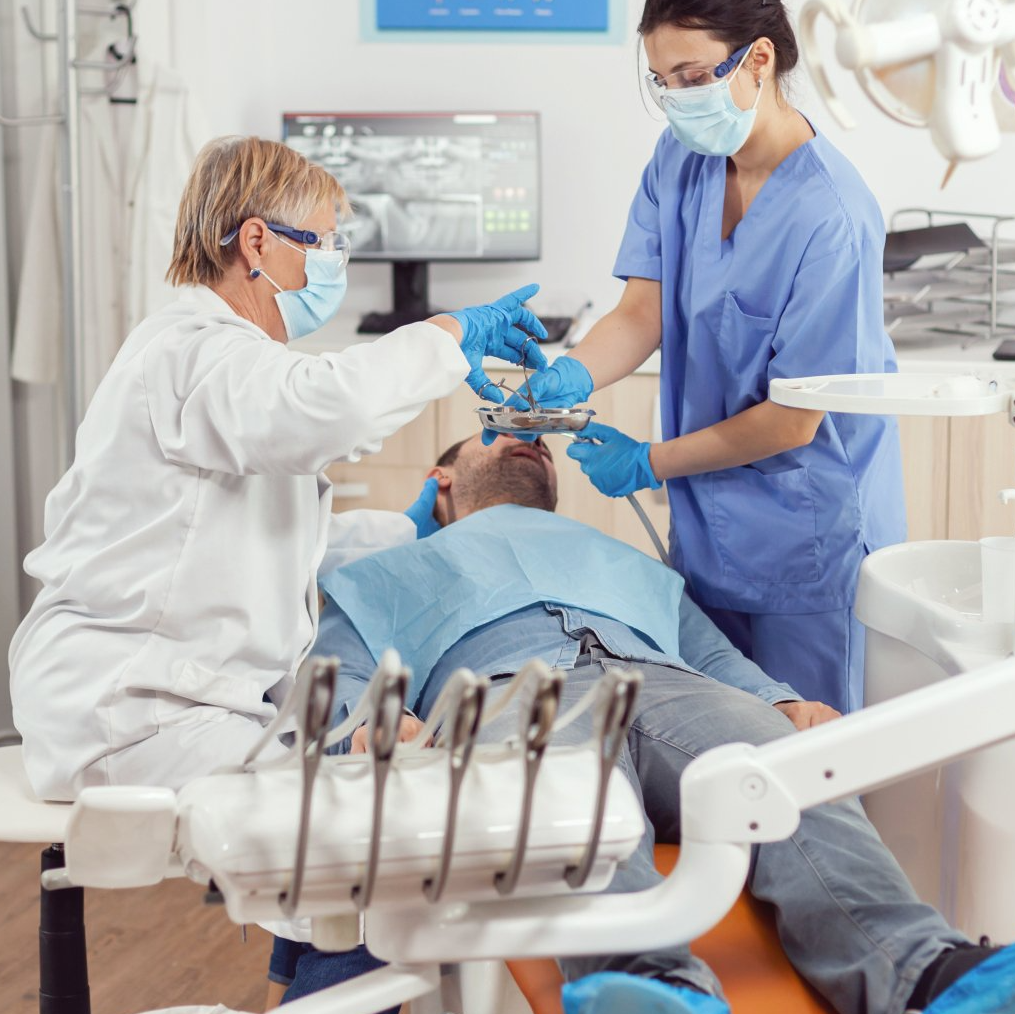Common Dental Emergencies
Learn what are the most common dental emergencies and how to handle them.
What are the most common dental emergencies?
While most dental problems can wait to be seen by a dentist during regular office hours, there are some situations that require immediate treatment. The most common dental emergencies include chipped or cracked teeth, knocked-out teeth and severe tooth pain.
If you experience any of these problems, it is important to see a dentist right away. With prompt treatment,
many dental emergencies can be resolved quickly and without long-term damage.
1. Toothache
Toothaches are a common dental emergencies that can cause a great deal of pain and discomfort. The most common cause of toothaches is tooth decay, which can occur when plaque buildup creates small holes in the enamel.
However, gum disease, TMJ disorders, and teeth grinding can also lead to tooth pain. In most cases, a toothache will go away on its own within a few days.
However, if the pain is severe or persistent, it is important to see a dentist as soon as possible. They will be able to diagnose the underlying cause of the toothache and provide treatment accordingly. In some cases, a simple filling may be all that is needed to relieve the pain.
However, more serious problems like gum disease may require more extensive treatment. Regardless of the cause, it is important to seek dental care as soon as a toothache arises in order to avoid further complications.

2. Chipped or broken teeth
Chipped or broken teeth can be caused by a number of things, from biting on hard objects to auto accidents. Whatever the cause, it's important to seek professional dental care as soon as possible. Left untreated, a cracked tooth can become infected and lead to more serious problems.
In addition, the damage may become worse over time and eventually require more extensive treatment.
Dental crowns or veneers may be necessary to restore the tooth to its original appearance.
In some cases, the tooth may need to be extracted. To avoid these issues, it's best to see a dentist as soon as you notice any damage to your teeth.
3. Abscess
A dental abscess is a painful infection at the root of a tooth. The infection is caused by bacteria that enter the tooth through a crack or cavity. Once inside, the bacteria begin to multiply, causing the tissue around the tooth to become inflamed.
If left untreated, a dental abscess can spread to other teeth and even to the jawbone.
Treatment for a dental abscess generally involves draining the infection and then filling the cavity with an antibacterial agent.
In some cases, the tooth may need to be removed. Prompt treatment of a dental abscess is essential to prevent further damage to the tooth and surrounding tissues.

4. knocked out or broken tooth
One of the most common dental emergencies is a knocked out or broken tooth. If you experience this type of injury, it is important to seek dental care immediately.
Rinse your mouth with warm water and apply a cold compress to the area to reduce swelling.
With prompt treatment, it is often possible to save a knocked out tooth.
However, if you delay treatment, the tooth may be lost permanently.
5. Bleeding after tooth extraction
Bleeding and pain after a tooth extraction are common dental emergencies. However, if you have bleeding that persists or worsens, call your dentist.
In the meantime, you can apply pressure to the area with a clean gauze pad or cloth or apply ice to the outside of your cheek for 15 minutes at a time.
To help relieve pain, take over-the-counter analgesics such as ibuprofen or acetaminophen according to the package directions.
How to prevent common dental emergencies?
While some dental emergencies can be treated at home, others may require a trip to the dentist.
Here are some tips on how to prevent common dental emergencies:
- Brush your teeth twice a day with fluoride toothpaste.
- Floss daily to remove plaque and food particles from between your teeth.
- Visit your dentist regularly for professional cleanings and checkups.
- Wear a mouthguard when playing sports or engaging in other activities that could lead to an injury.
- Avoid chewing on hard objects such as ice cubes or candy bars.
- Do not use your teeth as tools for opening packages or ripping off tags.
If you do experience a dental emergency, contact your dentist right away for proper treatment.
Taking these preventive measures can help you avoid common dental emergencies and keep your smile healthy and bright.